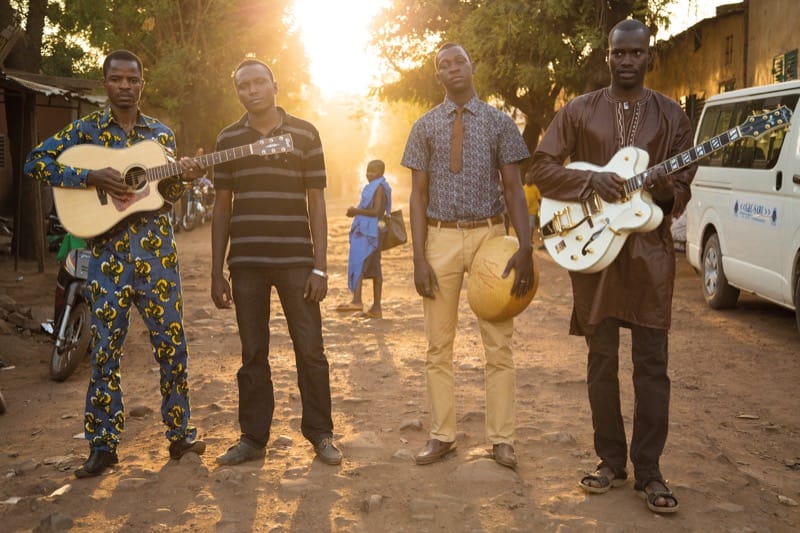 New York – Since 2007, March 3 has been declared Music Freedom Day around the globe. With unique musical events and initiatives in more than 30 countries, the day commemorating freedom of expression and human rights continues to captivate millions. This March, BBC Worldwide North America will release They Will Have To Kill Us First: Malian Music in Exile, a feature-length documentary which bowed at 2015’s SXSW Film Festival. Directed by Johanna Schwartz and featuring an original score by Nick Zinner (Yeah Yeah Yeahs), the film – hailed by Indiewire as a “gripping, powerful documentary” and “social journalism of the highest order” by The Austin Chronicle – will open at New York City’s Village East Cinema on March 4 and Los Angeles’ Laemmle Santa Monica Theater on April 1 and other markets. The commissioned soundtrack, featuring some of Mali’s most exciting artists, also releases on March 4.
New York – Since 2007, March 3 has been declared Music Freedom Day around the globe. With unique musical events and initiatives in more than 30 countries, the day commemorating freedom of expression and human rights continues to captivate millions. This March, BBC Worldwide North America will release They Will Have To Kill Us First: Malian Music in Exile, a feature-length documentary which bowed at 2015’s SXSW Film Festival. Directed by Johanna Schwartz and featuring an original score by Nick Zinner (Yeah Yeah Yeahs), the film – hailed by Indiewire as a “gripping, powerful documentary” and “social journalism of the highest order” by The Austin Chronicle – will open at New York City’s Village East Cinema on March 4 and Los Angeles’ Laemmle Santa Monica Theater on April 1 and other markets. The commissioned soundtrack, featuring some of Mali’s most exciting artists, also releases on March 4.
Music is the beating heart of Malian culture, but when Islamic jihadists took control of northern Mali in 2012, they enforced one of the harshest interpretations of sharia law by banning all forms of music. Radio stations were destroyed, instruments burned, and Mali’s musicians faced torture, even death. Overnight, the country’s revered musicians were forced into hiding or exile, where most remain — even now. But rather than laying down their instruments, these courageous artists fought back, standing up for their freedoms and using music as a weapon against the ongoing violence that has ravaged their homeland.

Co-written by Schwartz and Andy Morgan, renowned journalist and former manager of GrammyAward winning band Tinariwen, They Will Have To Kill Us First is produced by Sarah Mosses of Together Films and executive produced by Andre Singer (The Act of Killing) alongside Stephen Hendel, Victoria Steventon, OKAY Africa and Knitting Factory Entertainment.

A #TheyWillHaveToKillUsFirst tattoo campaign, supported via social media channels, also continues to raise global awareness for the plight of musicians in exile around the world.
“It is hard to imagine life without music, but for the people of Mali, whose culture is so deeply rooted in music, this is a reality they had to face every day. It is a privilege to be able to bring this incredible tale of perseverance in the face of terrible adversity to the U.S.,” states Soumya Sriraman, EVP of Franchise and Digital Enterprises.
“I am so proud to bring these musician’s stories to the world. They’ve been through hell, and survived to sing about it. Though the conflict in Mali is still far from over, with extremist attacks continuing in the north and south to this day, I have no doubt that these musicians will continue to stand up and fight for their right to sing,” stated director Johanna Schwartz.








